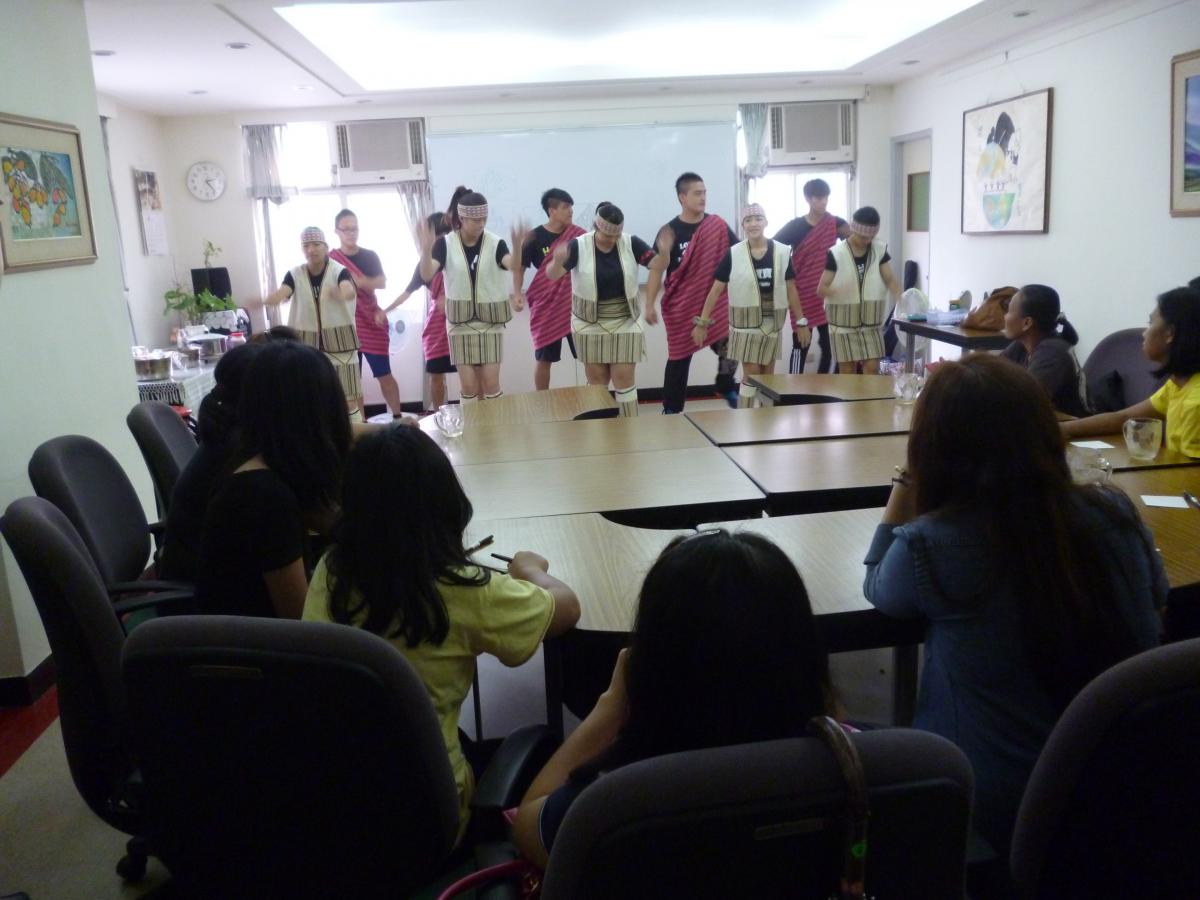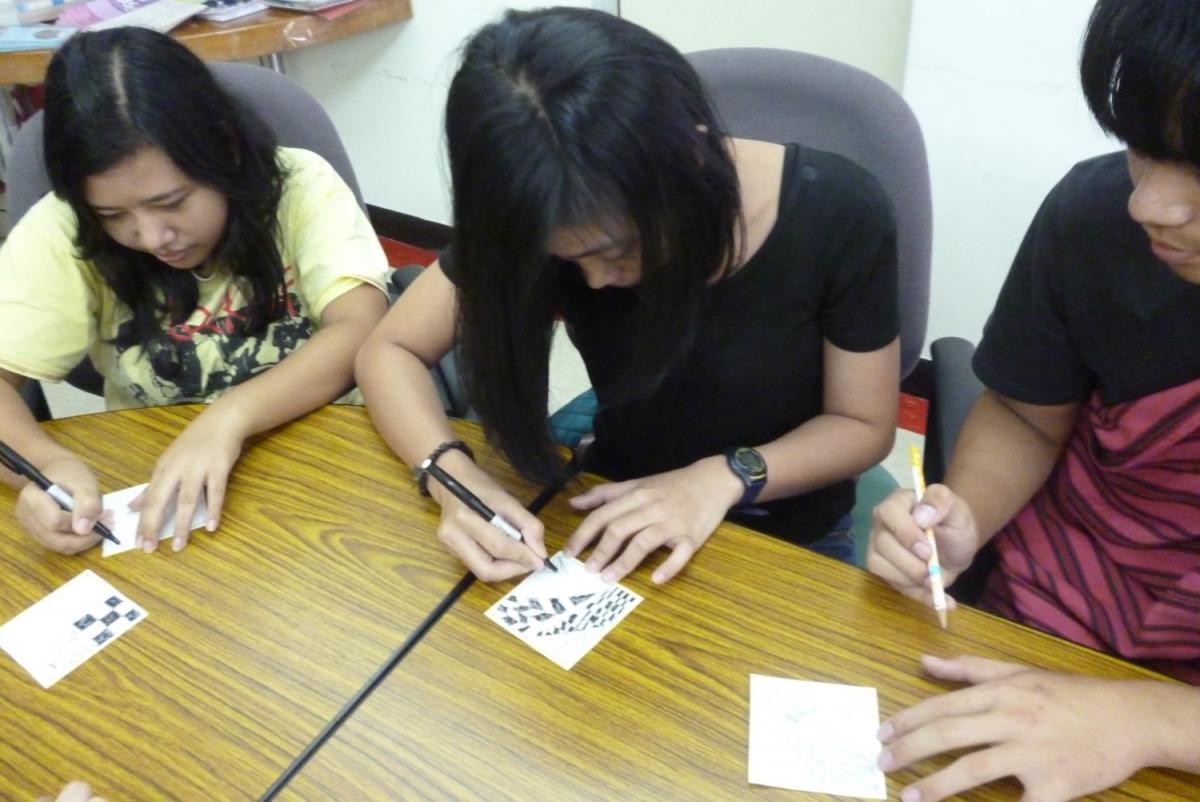A group of young indigenous people from the mountains of Hsinchu in Taiwan recently took the initiative to share their customs and traditions with Indonesian, Filipino and Vietnamese domestic care workers working in Taipei.
 Given that they had no common language and that they were much younger, the Tayal youth were initially very shy and nervous, but they plucked up the courage to perform Tayal songs and dances. The migrant workers were very happy to see the performances, which were new to them. Many were greatly comforted by the show because they are usually very busy with domestic work and feel slighted and psychologically hurt.
Given that they had no common language and that they were much younger, the Tayal youth were initially very shy and nervous, but they plucked up the courage to perform Tayal songs and dances. The migrant workers were very happy to see the performances, which were new to them. Many were greatly comforted by the show because they are usually very busy with domestic work and feel slighted and psychologically hurt.
The youth also taught the migrant workers Zentangle, teaching them one-on-one the easy-to-learn, relaxing, and fun way to create beautiful images by drawing structured patterns. They taught them in silence, by example, and found their students to be quick learners. With each drawing, the migrant workers began to relax and forget the sorrows of homesickness, the fear of not finding a suitable employer and the taste of the fruit of injustice. Seeing how creative their students were, the Tayal youth had a rare sense of achievement. Even more surprising was that Tayal food and Southeast Asian drinks satisfied both groups.
 The three hours of sharing did not rely on language translations provided by mobile telephones. The language barrier was forgotten with singing, dancing and drawing, as well as food and drink. Differences were no longer obstacles but became ways to appreciate the riches of the other. The result of this first encounter left a deep impression on all and they hope that this can be continued in the future.
The three hours of sharing did not rely on language translations provided by mobile telephones. The language barrier was forgotten with singing, dancing and drawing, as well as food and drink. Differences were no longer obstacles but became ways to appreciate the riches of the other. The result of this first encounter left a deep impression on all and they hope that this can be continued in the future.
There are officially around 600,000 migrant workers in Taiwan, hailing from Thailand, the Philippines, Vietnam and Indonesia. The Indonesians are the largest group, numbering around 240,000. Of this number, 180,000 are domestic caregivers. Meanwhile, there are around 530,000 indigenous people in Taiwan from more than 16 tribes, each with its own language and culture. Both the indigenous people and migrant workers are on the margins of society, even sharing some common traditions. The Jesuit work Rerum Novarum Centre in Taipei serves both groups.
The New Affairs Social Service Center is a social service organization dedicated to caring for disadvantaged individuals in the workplace, striving to promote a society where resources are shared for the common good. They have long been committed to improving the quality of life for migrant workers and elderly care, co-creating a harmonious society for migrant workers and employers. They help marginalized groups who suffer from exploitation and injustice, and they invite you to become their guardians. Your donation will help these vulnerable individuals in overcoming their difficulties and obtaining assistance for their rights. Please click(“I want to donate") or call (02) 2397-1933 #122. Thank you for your response and concern!
